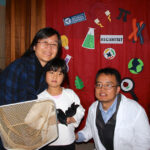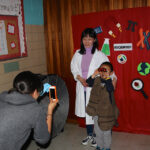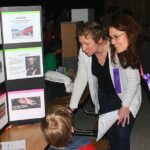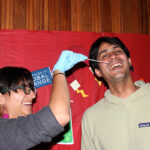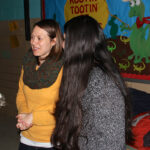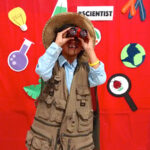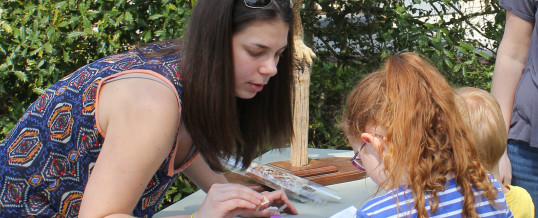Sydney Hope, a Ph.D. student in the Hopkins Lab, visited Franklin County High School on Friday, November 4, 2016 to speak about her research and experience as a scientist as part of the school’s “Moment of Science” program. The “Moment of Science” takes place during the activity period on select days and the school brings speakers in to talk about different aspects of science. All students from grades 9-12 are invited to attend.
Sydney spoke about her research on how incubation temperature affects the behavior of Wood Duck ducklings. She talked about how environmental changes and human disturbances, such as scaring birds off of their nests, may lead to lower egg incubation temperatures. Then, she explained how her results showed that ducklings incubated at lower temperatures are less successful at performing the ‘nest exodus’ behavior. Wood Ducks nest in trees and the duckling must climb up out of the nest and jump down to their mother once they hatch; this is called ‘nest exodus’. Watching the videos of ducklings jumping out of nest boxes was one of the highlights of the presentation for the students.
Students were asked to write down at least one thing that they learned. Some responses included “Ducklings get out better when they’re warmer incubated” and “I didn’t know ducks could be adapted for such a far fall.” Sydney also spoke about her experiences as a graduate student and answered questions about how she made it to the point she is now. Another great lesson learned: “A good reason to be a scientist is that there are many unanswered questions in the world.” Agreed!
Sydney was invited to visit Franklin County High School by Alicia Lowe, a teacher who participated in the NSF funded Research Experience for Teachers (RET) program at Virginia Tech. Alicia worked with Sydney to carry out an independent research project studying how incubation temperature affected Wood Duck duckling calling behavior. Sydney was excited to visit Alicia after their great RET experience, and hopes that she can visit again!

 The
The 
 [/one_half_last]
[/one_half_last]
